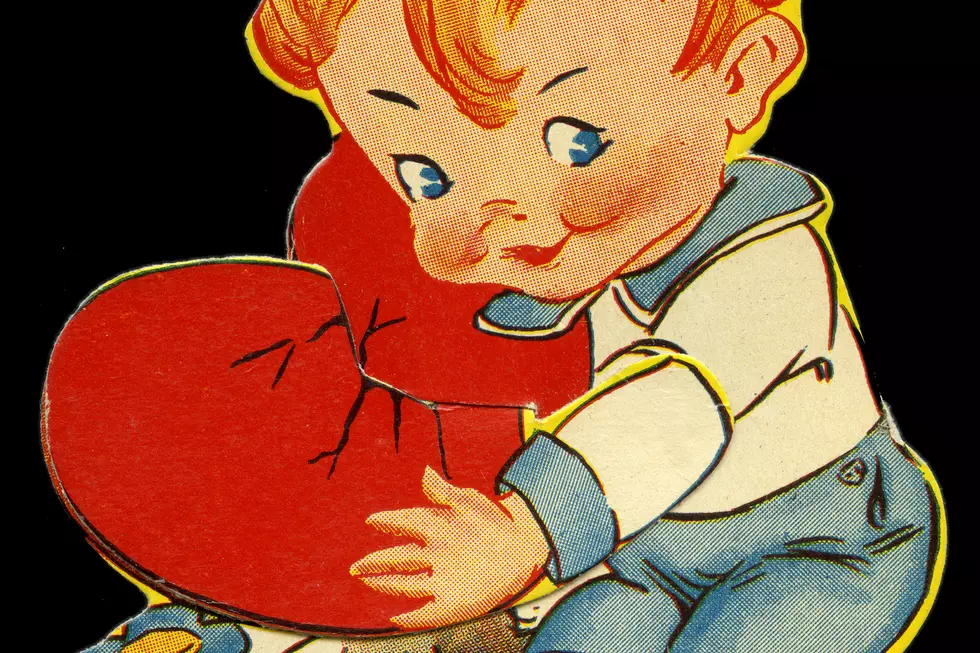
10 Best Talking Heads Songs
In the annals of musical winning streaks, it's hard to beat the first five studio albums by the Talking Heads. From 'Talking Heads: 77' to 'Speaking in Tongues,' the band seemed to progress effortlessly from New Wave art-pop to dense, cerebral, polyrhythmic funk. All the while, David Byrne explored the mundanity of emotions and the human experience like a detached alien writing his thesis. Here are ten key tracks that chart their remarkable evolution.
- Sire
Sire 10'Don’t Worry About the Government'
On this jaunty little pop ditty, Byrne details a civil servant’s enthusiasm for the modern building he lives in and his commute to work. The guy is so mechanical in his assessment of the benefits of his life and how he sees his loved ones and his employees in the same light that it’s tempting to wonder whether this song is a study of Asperger’s syndrome. But it hardly makes a difference when its set to such bouncy dynamic pop.
- Sire
Sire 9'Psycho Killer'
On the flip side, this early Heads classic lays bare the twitchy, unhinged energy beneath that peppy bland exterior. Under a pulsing bass and chopping guitar riff, the protagonist struggles with the imperfectness of humanity, observable in our pointless conversations and impoliteness. For Byrne’s clinically detached hero, these grievances provoke murderous impulses and a penchant for speaking French. Take his advice and run away as fast as you can.
- Sire
Sire 8‘Artists Only’
On their sophomore follow-up 'More Songs About Buildings and Food,' Talking Heads mostly maintained the same taut energetic pop sound but started subtly experimenting around the edges. This track opens with a hypnotic little guitar figure before launching into a jumpy stop-start verses that break down after the chorus. Meanwhile, we get another of Byrne’s aloof dissections, this time of the creative process. In the end, it surprisingly flames out with the Heads' version of a guitar jam. The Minutemen were definitely paying attention to this one.
- Sire
Sire 7‘The Big Country’
This album-ending track truly diverges from the band’s New Wave flavor with a slide guitar hook and airy lilt. At first, it appears to be just another one of Byrne’s clinical observational studies with the narrator describing bucolic life in the flyover states from high in his airplane. Then the whole thing surprisingly takes a turn into bile as Byrne asserts “I wouldn’t live there if you paid me.” After detailing their whole existence he even concludes in the end “It’s not even worth talking about, those people down there.” In a recent age of constant political pandering to the “real America,” its bracing to hear someone remorselessly piss on it.
- Sire
Sire 6‘Life During Wartime’
Talking Heads’ third album, 'Fear of Music,' is one of the strangest in pop history. An album-length exploration of paranoia and anxiety set to brittle avant-funk, it makes you decide on every song whether to dance or bite your fingernails. This driving groove track has long been a fan favorite, with its famous chorus of “This ain’t no party, this ain’t no disco.” But underneath all the fun are lyrics inspired by Patty Hearst detailing the mindset of an anarchist planning to set the world on fire.
- Sire
Sire 5‘Heaven’
Amidst all the maelstrom of neurosis on 'Fear of Music,' the band stuck this beautiful meditation on bliss. The question is, what kind of bliss? Byrne describes exciting social situations such as a bar where they play your favorite song all night long, a party where everyone leaves at the same time and a familiar kiss. All the while asserting that these things are nothing and “Heaven is a place where nothing happens.” Does he mean it’s a place where things are calm and predictable? Or is it that lack of friction in bliss that’s really just dull nothing? Fans have been mulling this Rubik’s cube of a song for 25 years.
- Sire
Sire 4‘The Great Curve’
For their next album, 'Remain in Light,' the band decided to explode their sound. Their dabbling in funk turned into a full-on immersion with Afrobeat polyrhythms. Producer Brian Eno was let loose experimenting with sampling and looping, and they brought in ringers like Adrian Belew to lay down killer guitar solos. The result was a brainy, vibrant, aggressive sound -- what James Brown might have played had he come up through the CBGB’s scene discussing poetry with Patti Smith and Richard Hell. In turn, Byrne started to let his humanity come through more than ever before. On this jittery speed-funk track, Byrne ponders “Sometimes the world has a load of questions, sometimes the world knows nothing at all.” Then rather surprisingly, in a rare moment of sexuality, he answers, “The world moves on a woman’s hips!”
- Sire
Sire 3‘Once In a Lifetime’
'Burning Down the House,' from their next album, would be a much bigger hit, but of course, this is the song that has embedded Talking Heads in the larger public consciousness over the years. And while the bubbling keys and simple catchy bassline are part of the reason for that, it’s real resonance can probably be more attributed to its lyrics. In Byrne’s dissection of middle-age malaise and confusion about how life can take us places we never plan, “How did I get here?” was a question anybody could relate to.
- Sire
Sire 2‘Girlfriend Is Better’
On 'Speaking in Tongues,' they would blend their funk jones with their previous art-pop sensibilities. A more accessible record than 'Remain' with much more humor than had previously been displayed, 'Tongues' sounded like Byrne had spent the previous year really enjoying Prince’s '1999.' This swaggering groove track splits the difference between infectious and eccentric so well the Purple One must have had a smile on his face.
- Sire
Sire 1'This Must Be Place (Naive Melody)'
While 'Once in a Lifetime' is still the most famous Talking Heads, this track closing the classic era of Talking Heads seems to have become everybody’s favorite Talking Heads song. Marking a return to their simpler song structures, the “naive melody” consists of little more than a bouncy beat, a bright melody line and Byrne’s most open-hearted lyrics about the swoony, comforting, brain-draining feeling of being in love. And there was probably no better motto articulated for a band that followed its own muse like this than “Always for love, never for money.”
More From Diffuser.fm









